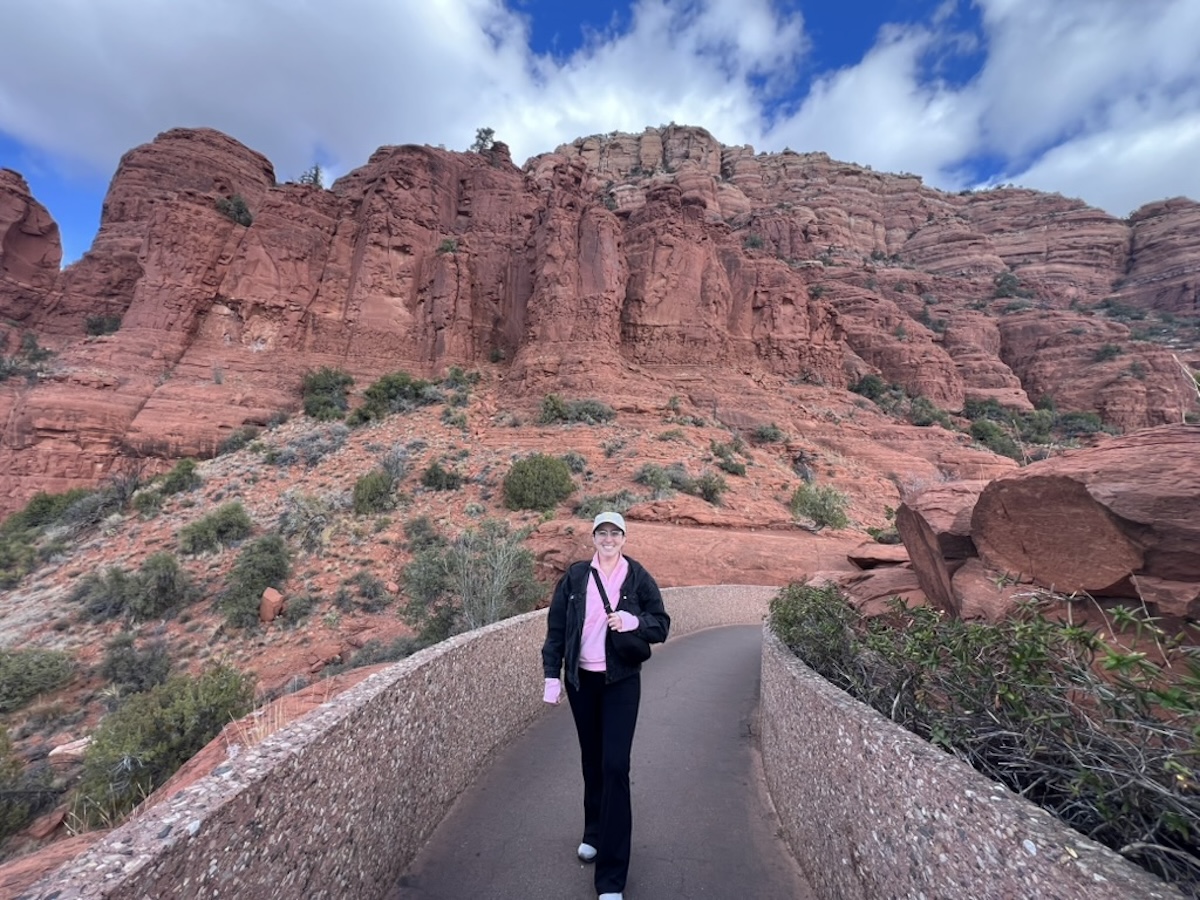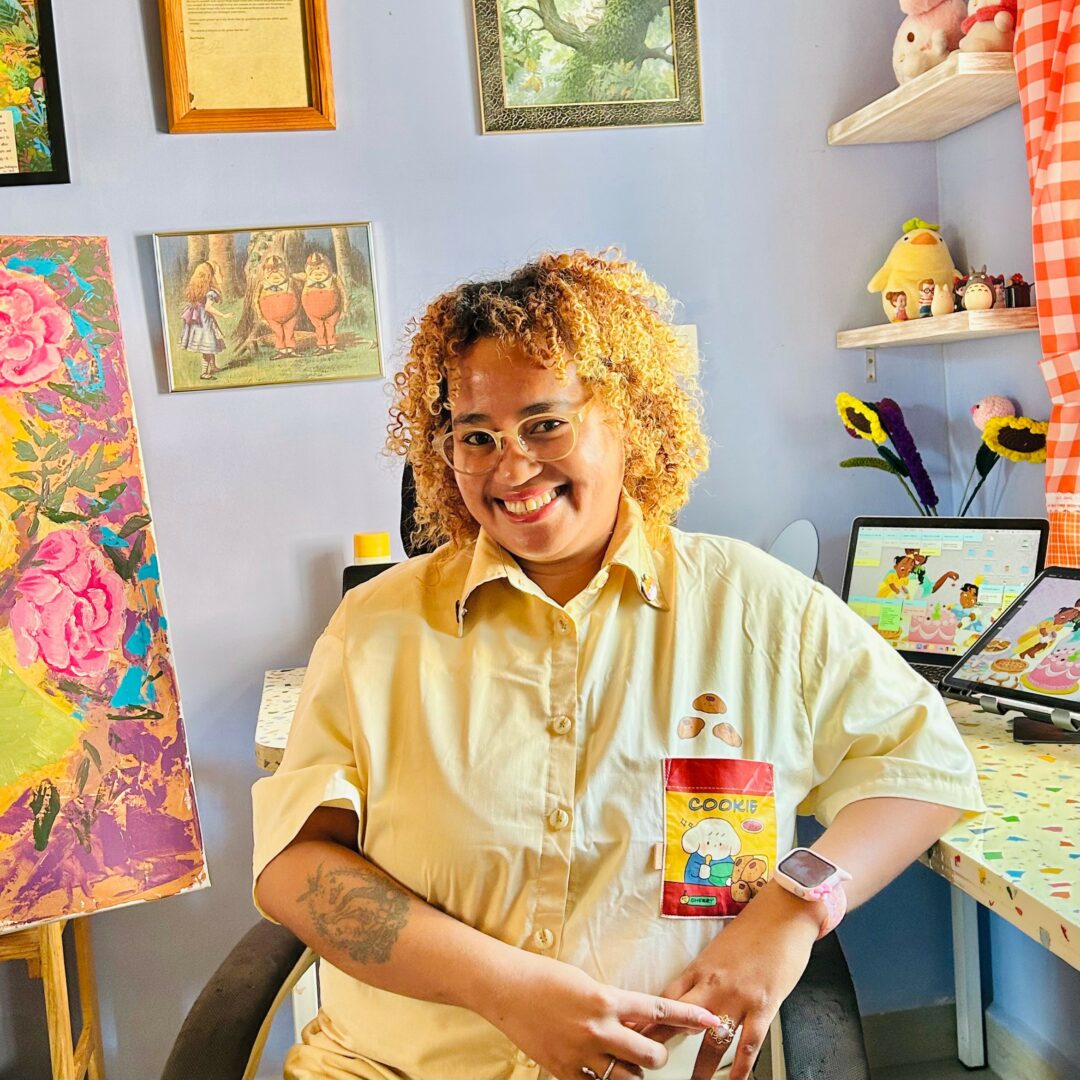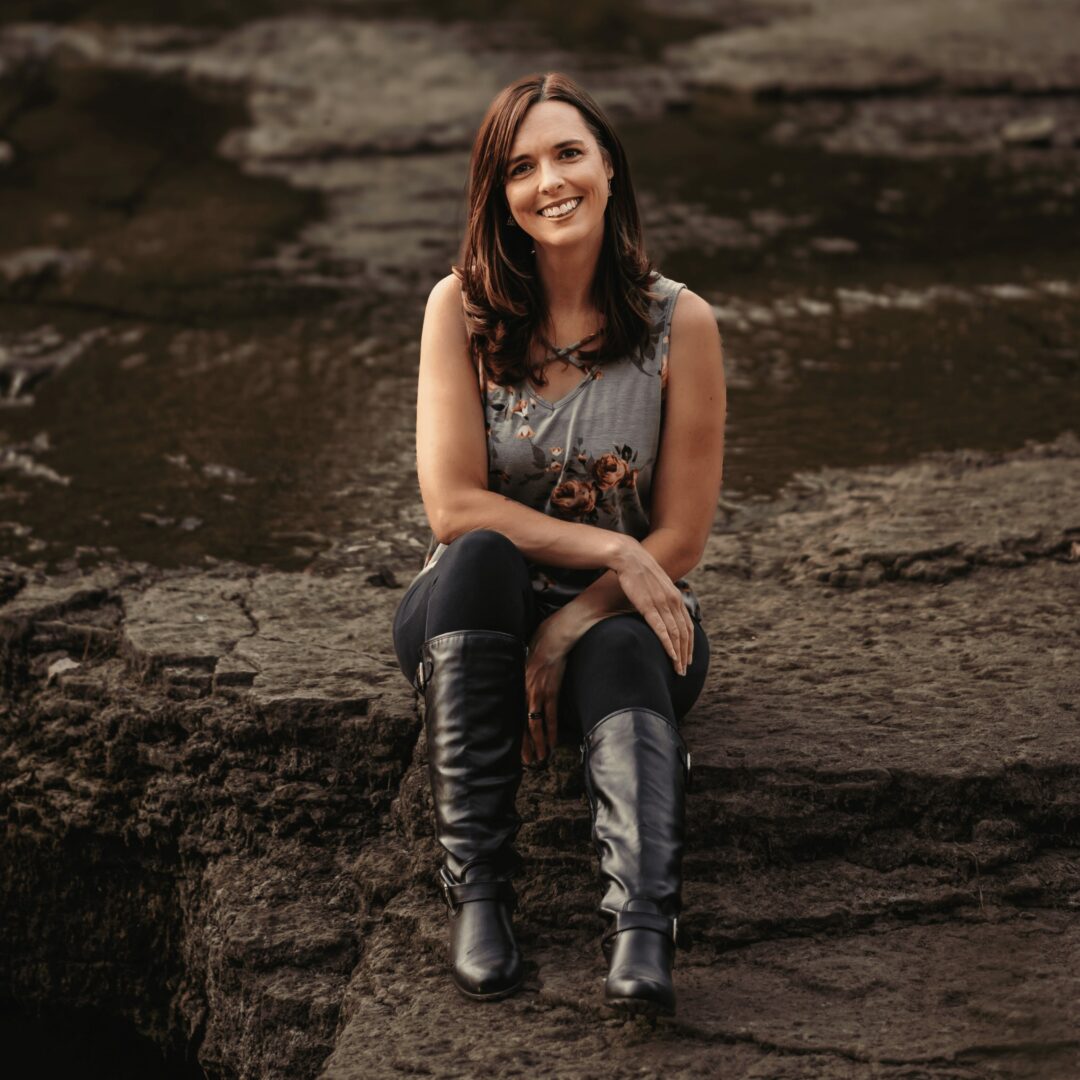We recently connected with Emilie Jordao and have shared our conversation below.
Emilie, sincerely appreciate your selflessness in agreeing to discuss your mental health journey and how you overcame and persisted despite the challenges. Please share with our readers how you overcame. For readers, please note this is not medical advice, we are not doctors, you should always consult professionals for advice and that this is merely one person sharing their story and experience.
This question has many layers for me. The foundation of my persistence was finding my lighthouses—the people, places, and even animals that I loved more than life itself. The ones I couldn’t imagine leaving behind. My family was first, then my pets, and the support group I had created while going through antidepressant withdrawal. Showing up for them gave me strength. Focusing on my lighthouses every day kept me going.
Beyond that, I became intentional about joy. Instead of waiting for it to find me, I actively sought it out—through dance classes, soaking in natural hot springs, gathering with friends, attending retreats, and calling my loved ones just to hear their voices.
I also shifted my focus to one day at a time. Instead of getting overwhelmed by the big picture, I asked myself: *What do I need to get through today?* One day turned into many, and now I’m on the other side of anxiety, depression, and psychiatric medication withdrawal.


Thanks, so before we move on maybe you can share a bit more about yourself?
I’m a holistic health and psychiatric medication withdrawal coach, and my work is all about helping people move *beyond medication* to find true healing. After going through my own journey of tapering off antidepressants, I became passionate about supporting others on a similar path. I offer one-on-one coaching focused on nervous system regulation, emotional freedom, core wounding and inner child work, breathwork, somatic movement, anti-inflammatory nutrition, and circadian rhythm regulation—because real healing happens on multiple levels.
One of the most special things about my work is that it’s deeply personal. I’ve been through it. I know what it’s like to feel stuck, to doubt if healing is possible. And now, I get to walk alongside others as they navigate their own journey, helping them reconnect with their inner wisdom and resilience. It’s not about forcing changes or following rigid protocols—it’s about finding what works *for you*.
I also run a virtual support group every Monday for people at any stage of their tapering process. It’s a space to share progress, get support during tough moments, and celebrate wins. And for those looking for deep relaxation and nervous system healing, I offer a donation-based Yoga Nidra and Reiki class.
Right now, I’m focused on expanding my offerings and reaching more people who need this kind of support. Whether it’s through coaching, community, or education, my goal is to make the journey *off* medication as informed, supported, and empowering as possible. You can connect with me on Instagram @health.with.emilie or website www.healthwithemilie.com check out my services to learn more!


Looking back, what do you think were the three qualities, skills, or areas of knowledge that were most impactful in your journey? What advice do you have for folks who are early in their journey in terms of how they can best develop or improve on these?
Looking back, three key things had the biggest impact on my journey: **resilience, nervous system awareness, and intuition.**
1. **Resilience:** Healing—especially from psychiatric medication withdrawal—is not linear. There were times I felt like I was making progress, only to hit a wave of symptoms that made me question everything. Resilience is what kept me moving forward, even on the hardest days. The best way to develop this? Focus on *one day at a time.* Don’t get lost in the big picture or how far you have left to go. Just ask yourself, *What can I do to support myself today?* Also, surround yourself with people who remind you that healing is possible. Having a support system makes all the difference.
2. **Nervous System Awareness:** I didn’t just heal mentally—I had to heal my **nervous system.** I learned to recognize when my body was in fight-or-flight and how to bring it back to safety through breathwork, somatic movement, nature time, and deep rest practices like Yoga Nidra. If you’re early in your journey, I recommend getting familiar with **polyvagal theory** and learning how to track your own nervous system states. Start small—try things like grounding (bare feet on the earth), slow belly breathing, or even humming to activate the vagus nerve.
3. **Intuition:** There’s so much conflicting information out there about mental health and healing. I had to learn to filter through it and trust my *own* inner guidance. If something felt wrong for my body—even if a doctor or expert recommended it—I listened to that feeling. My advice? Start strengthening your intuition by paying attention to how things make you feel. Does a certain food, supplement, or practice make you feel better or worse? Keep a log if needed. The more you trust yourself, the stronger your intuition becomes.
Wherever you are in your journey, know that healing is possible. Be patient with yourself, lean on support, and take it one step at a time. 💛


How would you describe your ideal client?
My ideal client is someone who wants to heal their mental health naturally, whether that means avoiding psychiatric medications altogether or tapering off them safely. They are motivated to navigate this process with intention and are willing to implement new habits and healing modalities to support a holistic approach to mental well-being.
They seek support from a coach who understands—someone knowledgeable in natural health who truly gets the unique challenges of medication withdrawal. They value a gentle, body-friendly approach that respects both mind and body, helping to ease withdrawal symptoms while building emotional resilience. Rather than searching for quick fixes or rigid protocols, they prioritize nervous system regulation, emotional processing, and sustainable well-being.
Instead of strict rules or labels, they are open to nourishing lifestyle shifts that support their healing. They feel motivated to explore deeper healing, whether through inner child work, self-awareness, or somatic practices. Above all, they crave connection with someone who understands—without judgment, stigma, or medical dogma.
Whether they’re still exploring their options, just starting their healing journey, or actively tapering, my program offers resources, structure, and compassionate support to help them move forward with confidence. If you’re ready to reclaim your health, cultivate resilience, and move beyond medication, this might be the perfect fit for you.
Contact Info:
- Website: https://www.healthwithemilie.com
- Instagram: @health.with.emilie
- Other: https://healthwithemilie.circle.so/


so if you or someone you know deserves recognition please let us know here.




